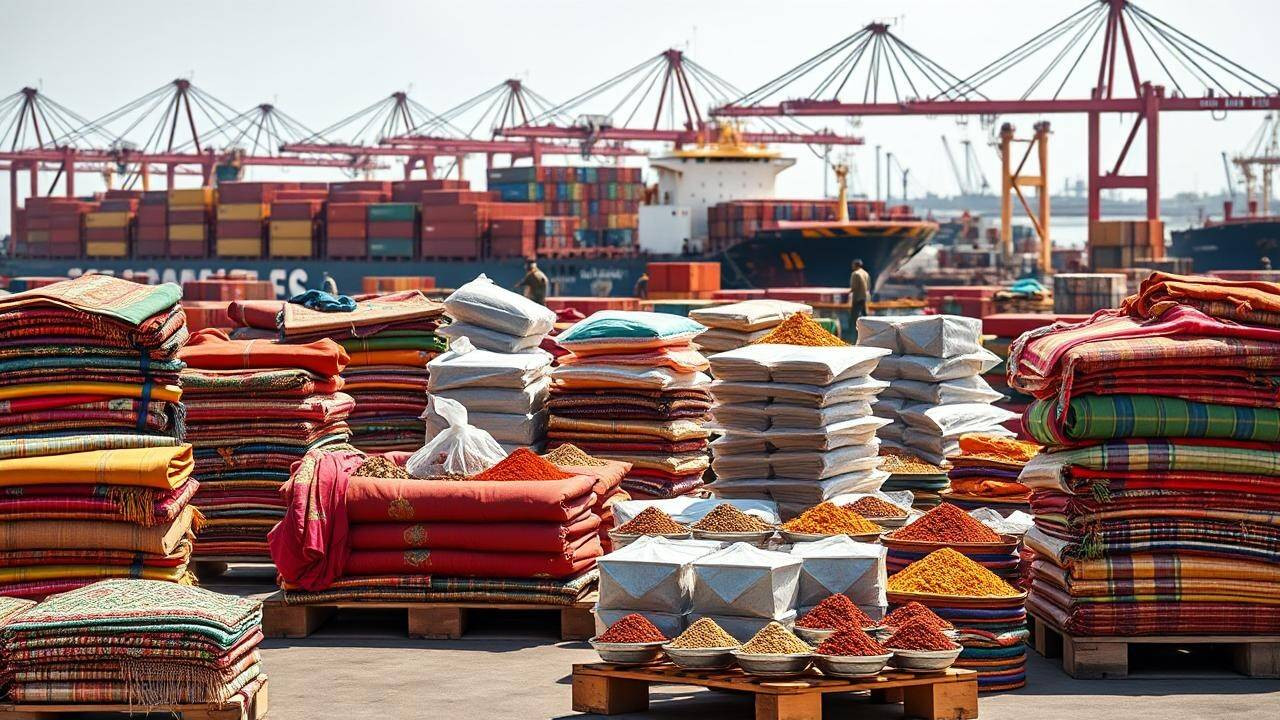Indian businesses are worried about potential order cancellations from American clients due to the new 25% duty on Indian goods, exceeding rates for competitor nations. During discussions with Minister Piyush Goyal, sectors like textiles, steel, and agriculture requested support, including an Export Promotion Mission and US market assistance.
A Storm Brewing: How Trump’s Tariff Threat Could Rock Indian Exports
The air crackles with uncertainty. Another election cycle in the US is underway, and with it, the specter of trade wars has once again reared its head. Donald Trump’s recent pronouncements about imposing a blanket 25% tariff on all imports into the United States have sent shivers down the spines of Indian exporters. Is this just campaign rhetoric, or are we on the brink of another global trade shake-up?
For businesses that rely on the US market, this isn’t an abstract political debate; it’s about survival. The potential impact is far-reaching, threatening to disrupt carefully cultivated supply chains and erase hard-won competitive advantages. The ripple effects could be felt across various sectors, from textiles and handicrafts to engineering goods and pharmaceuticals.

The immediate concern is, understandably, the possibility of order cancellations. US buyers, facing significantly higher costs, may be forced to re-evaluate their sourcing strategies, potentially turning to domestic suppliers or seeking alternative markets with more favorable trade agreements. For Indian businesses, particularly small and medium-sized enterprises (SMEs), this could translate into a devastating loss of revenue and even workforce reductions.
The Urgency of Government Support
The gravity of the situation has prompted calls for swift and decisive action. Industry bodies are urging the Indian government to engage proactively with the US administration to negotiate a favorable outcome. Simultaneously, they are seeking immediate support measures to help exporters weather the potential storm. These measures could include:
* Financial assistance: Providing subsidized credit and export financing to help businesses cope with potential losses and maintain competitiveness.
* Diversification strategies: Encouraging and supporting exporters in exploring new markets beyond the US, reducing dependence on a single destination.
* Negotiating trade deals: Expediting free trade agreements with other key markets to create alternative export opportunities.
* Tax relief: Implementing temporary tax breaks or rebates to offset the impact of the tariffs on export prices.
The ability of Indian exporters to adapt to this new landscape hinges on the speed and effectiveness of these interventions.
Navigating the Tariff Maze: A Call for Resilience
Beyond government intervention, individual businesses must also take proactive steps to mitigate the risks. This includes:
* Strengthening relationships with existing clients: Open communication and a willingness to negotiate prices and payment terms can help retain valuable customers.
* Improving efficiency and reducing costs: Streamlining operations and implementing cost-cutting measures can help absorb some of the tariff burden.
* Investing in innovation and product development: Focusing on high-value, differentiated products can make Indian exports more resilient to price fluctuations.
The proposed 25% US tariff is more than just a number. It represents a real threat to the livelihoods of countless individuals and the stability of entire industries. The coming months will be critical in determining the ultimate impact of this potential trade barrier. The combined efforts of government, industry, and individual businesses will be essential in navigating this challenging environment and ensuring the continued success of Indian exports in the global market. Just as crucial is fostering a business environment that encourages innovation and agility. Learn more about fostering agility through effective talent management.
Preparing for the Unforeseen: A Proactive Approach
While the future remains uncertain, one thing is clear: the global trade landscape is constantly evolving. Businesses that are proactive, adaptable, and resilient will be best positioned to thrive in this dynamic environment. Staying informed about policy changes, diversifying markets, and investing in innovation are key strategies for navigating the challenges and capitalizing on the opportunities that lie ahead. Will India be able to rise to this challenge and safeguard its export economy? The answer, as always, lies in a combination of strategic planning, decisive action, and a spirit of unwavering resilience.







